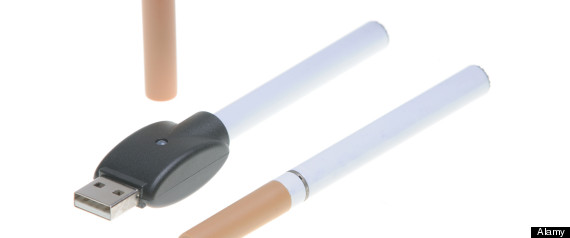
More than 35 proposals calling for some type of regulation of electronic cigarettes have been introduced this year in legislatures across the country, but Utah seems to be the only state currently proposing that they be taxed like regular tobacco, said Karmen Hanson, a tobacco policy analyst with the National Conference of State Legislatures. Hanson is unaware of any state with a law like this on the books.
Often called "e-cigarettes," the battery-powered devices heat a liquid nicotine solution and create vapor that users inhale. Their popularity has spiked in recent years.
First marketed overseas in 2002, e-cigarettes first became widely available in U.S. in 2006. There are several million users worldwide today, up from a few thousand in 2006. Analysts estimate sales could double to $1 billion in 2013.
Some companies have even started running TV commercials, including an ad during this year's Super Bowl that showed a man using an electronic cigarette made by an Arizona-based company. Many states have been waiting for the Food and Drug Administration to come out with regulation before passing their own laws, but states seem to be growing impatient, Hanson said. "The more popular they become, a more prominent public policy issue they become," Hanson said. "Without federal regulation, it's left up to the states." The Food and Drug Administration's current stance is that health impact of electronic cigarettes is unknown because it has not been properly studied. There is speculation that the agency will take over regulatory authority of the devices this year, dealing with them in a similar way as they do with regular cigarettes and other tobacco products. The Utah measure's sponsor, Republican Rep. Paul Ray, says e-cigarettes should not be considered healthy. "They're trying to sell them as nicotine replacement therapy. It is not," Ray said this week. "It is not an FDA-approved nicotine replacement therapy. There's medications, there's patches, there's things for that. This is not one of them." Ray considers electronic cigarettes similar to other tobacco products and says they should be taxed as such. His measure extends to dissolvable tobacco, which is pressed into shapes like tablets that slowly melt in a user's mouth. "This is terrible stuff. They're peddling stuff that they know absolutely will kill people," Ray said. "This is an industry who kills their clientele." Utah law already prohibits anyone younger than 19 from possessing the products or anyone from selling the products to someone younger than 19, but because of a loophole, county and city agencies are not able to impose fines or penalties on those selling e-cigarettes or dissolvable tobacco products to anyone underage. The electronic cigarettes would be taxed at 86 percent, Ray said. That's the same as Utah's rate on cigars, roll-your-own tobacco or pipe tobacco. On cigarettes, the state tax is generally a flat $1.70 for a pack of 20 smokes. It usually costs about $50 to buy the equipment to get started using electronic cigarettes, said Brandon Stauffer, who has used the devices to quit smoking. After that, the main cost is buying the "e-juice," which is a nicotine-laced liquid that becomes the vapor when heated. A 30-milliliter dose usually costs $15-$20 and lasts about two weeks, Stauffer said. So, under Ray's proposal, a $20 batch of liquid nicotine would cost about $37.20. Currently, people only pay regular sales tax on electronic cigarette items. A legislative analysis shows the state could see an additional $1.6 million a year if the e-cigarette tax becomes law.
It's unclear how far the measure will get in this year's legislative session, which comes to a close Thursday. An amended version of the bill passed through a House committee Wednesday afternoon. It is now awaiting debate by the full House. If approved, it moves to the Senate for consideration.
Electronic cigarettes are touted as a way to break an addiction to traditional cigarettes. Stauffer, 38, of West Point, Utah, is among the believers. He credits the devices with helping him quit smoking after 20 years. He had tried quitting a dozen different times using nicotine patches, gum and lozenges.
"Quitting smoking has never been easier. I quit almost overnight," said Stauffer. "Cigarettes taste horrible to me now. And, I'm doing much less harm to my body by doing this."
Since he started using electronic cigarettes in late 2011, Stauffer has gradually been cutting back on the amount of liquid nicotine in the devices. He's hoping to be able to stop using them all together within a year.
"Vilifying these products is the wrong approach," Stauffer said. "If the state and this country is serious about helping us make healthy choices then this is something that should be encouraged."
Did you like this article? Give it a Plus+





